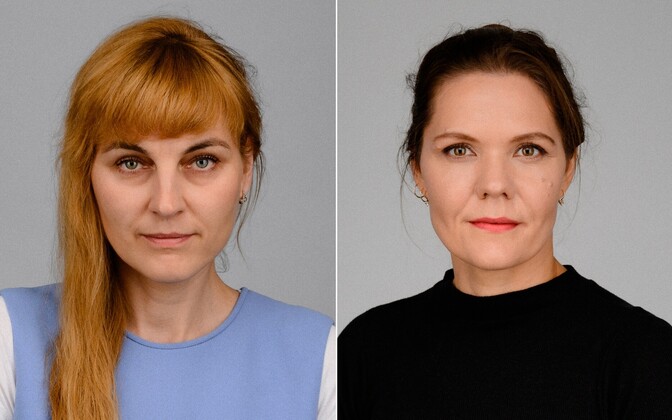The existing “no” model put the burden of proof on the victim, who was required to demonstrate they clearly expressed a lack of consent or otherwise actively expressed resistance.
The bill’s explanatory memorandum requires a participant in sexual activity to actively and freely express their consent to that activity, while consent is considered absent until expressed. This expressing of consent or lack of consent can be given non-verbally as well as verbally.
“Consent can be expressed verbally, via body language, or in another way. Until consent is expressed, it is considered absent and cannot be assumed, meaning that silence is not consent. Until one party has expressed consent, it is the responsibility of the other party to find out whether there has been consent or not. Consent must be given as a result of free will,” the memorandum notes.
According to the explanatory memorandum, offenses against sexual self-determination under the Estonian Penal Code do not currently fully comply with the Council of Europe Istanbul Convention, though this could be rectified.
“We want to move from a force- and coercion-based approach to a consent-based approach, in the case of sexual crimes. This means regulating the law concerning sexual violence, so that sexual activities without consent are punishable,” the explanatory memorandum goes on.
Under current law if a victim turns to the police and reports that they were raped yet no other violence or coercion was deployed and the victim was not in a helpless condition — meaning a situation where they are unable to resist or understand what is happening — yet the individual did not wish to participate in the sexual activity, then this does not constitute statutory rape, the explanatory memorandum states.
The bill also establishes in which cases and situations free and expressed consent cannot be present. This includes any situation where a person has not verbally, through their actions, or in any other way, expressed that they are taking part in sexual activity voluntarily. It also covers a situation where a person was coerced into sexual activity by violence or threats. Free and expressed consent cannot exist in a situation where the perpetrator intended or was aware that the person could not freely form their will, for example resulting from a consciousness disorder, from illness, intoxication, disability, an actual freezing up — that is, tonic immobility — or through fear of the perpetrator.
The bill will also write a specific provision into the Penal Code prescribing punishment in cases where a sexual crime has been committed which involved exploiting the victim’s dependence on the perpetrator.
The Ministry of Justice sent the long-planned legislative intent for coordination with stakeholders at the start of this year.
 The Ministry of Justice and Digital Affairs is housed in the the “Superministry” building in Tallinn. Source: Ken Mürk/ERR
The Ministry of Justice and Digital Affairs is housed in the the “Superministry” building in Tallinn. Source: Ken Mürk/ERR
Minister: Estonian people know what consent means
Minister of Justice and Digital Affairs Liisa Pakosta (Eesti 200) said that the feedback round brought out two things.
“First, that people are afraid that someone might be convicted without reason. But Estonia remains a state governed by rule of law, and all suspicions are interpreted in favor of the accused. The presumption of innocence applies. Only when clear evidence points to guilt can a person be convicted and punished. We made this aspect even clearer in the bill,” Pakosta said.
Pakosta also noted that convictions have not risen in those countries where a yes-model has been in force for a lengthy period of time, though the principle can encourage victims to come forward early, when such crimes are easier to prove.
“The presumption of innocence applies. In such cases, when one does not report [a rape] immediately, it may later be very difficult to collect evidence,” said the minister.
“The change we also expect in society is certainly that these acts will no longer take place and that this law will have a very strong preventive effect,” Pakosta added. Specifically about giving consent, Pakosta said that an individual will not be convicted if there is no reasonable evidence for such a conviction. “There is the same approach in other countries,” she noted.
Pakosta said that surveys show that the Estonian people do understand what consent, even expressed through body language, means and that it is needed.
“We have only 3 percent of people who think it is not necessary. In reality, it is still comprehensible to people when the other also desires the same thing or when they are frozen still like a stone. That is not consent, and people understand this,” she said.
Gynecologist: The no-model would have been a very small change
Kai Part, a long-time supporter of the yes-model, gynecologist and one of the founders of the sexual violence crisis center (SAK) in Estonia, told ERR that she welcomes the move towards the yes-model in the bill and its superseding the no-model.
“The no-model differs very little from what has been utilized in the legal system so far — in order for rape to be proven, sexual intercourse must be proven and a violent or helpless condition must be proven. With the no-model, it must be proven that a person definitively said ‘no’ or struggled against it. But as gynecologists we know that in 70 percent of rapes, the victim experiences tonic immobility and people cannot utter a word or raise a hand or a foot. They freeze like a pillar of salt,” said Part.
 Kai Part. Source: Alana Proosa
Kai Part. Source: Alana Proosa
According to Part, the presence of the immobility reaction has been proven both by brain studies and by studies of rape victims.
“Tonic immobility means that a person cannot say ‘no’ or put up active resistance. But with the yes-model — if a person is relaxed, does not feel fear, has a mutual sympathy with their partner — they can express their sexual consent calmly and without hindrance. There lies the difference,” Part explained.
“In the no-model we put people in situations where they must express the ‘no,’ but perhaps in seven out of ten cases they cannot do so. Not that they don’t want to, but they are unable to. That is why most European countries which have adopted consent laws have taken the path of the yes-model,” the gynecologist added.
Part outlined that when in a state of tonic immobility, a person often later does not themselves understand why they did not resist.
“People at the sexual violence crisis center describe situations to us and say that they do not know why they did not resist: ‘I could not move my hand or foot. I could not get a word out of my mouth.’ We have now started explaining to victims that this is normal. The brain goes into a mode like that without you being able to decide on it yourself. This helps victims — they realize that they are not guilty for not resisting.”
According to Part, opponents of the yes-model have argued that the helplessness clause is also present in current law. However, in their job gynecologists have met people who said they had a hole in their memory or were very drunk at the time of the incident, yet in such cases doctors have not later seen the helplessness provision applied in court. “Many such court cases have fallen through, because the perpetrator states that in his opinion, the victim was conscious and sober,” Part noted.
Legal scholars: Penal Code amendments will not amend society
The legislative intent for the consent law had also received critical feedback from University of Tartu legal scholars Laura Aiaots and Anneli Soo, among others. Aiaots and Soo said they did not oppose either the yes- or the no-model in principle, but were concerned that in a field which can arouse strong emotions, a decision is being made based on those emotions and without adequate analysis.
For example, Aiaots and Soo pointed out that the draft law does not specify in which areas the current definition of rape is insufficient.
The legal scholars also pointed out that the Supreme Court interprets the concept of helplessness in the Penal Code in a way which also includes situational helplessness, including freezing up.
 Laura Aiaots and Anneli Soo. Source: Rene Riisalu
Laura Aiaots and Anneli Soo. Source: Rene Riisalu
The experts also doubted whether the Penal Code is an appropriate instrument for changing social attitudes whatsoever, something which the state seems to be aiming for with the amendments.
According to Soo, they also plan to submit proposals to the consent law draft.
Until September 1, the ministry is awaiting opinions and proposals on the draft law from stakeholders, with a view to submitting the bill to the Riigikogu at the end of September. The Riigikogu will also set the date for the legislation to enter into force, with next year provisionally being that date.
746 sexual crimes were registered in Estonia in 2024, of which 99 were full contact sexual crimes involving an adult victim. Of these 99 crimes, 88 were rapes, with 95 percent of the victims being women.
—
Follow ERR News on Facebook and X and never miss an update!
